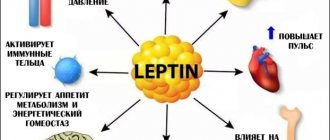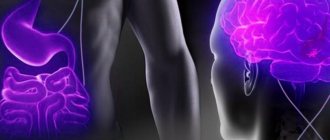Do you always feel hungry? Do you always leave the table hungry? We all understand that it is difficult to learn to control an increased appetite, especially if you have a habit of snacking frequently. But trust me, you can do it! Controlling your appetite is the best way to lose weight and prevent heart disease, diabetes, hypertension and metabolic disorders. However, this does not mean that you should go hungry. All you have to do is read this article to learn the difference between physical and mental hunger and follow our 20 effective tips!
The main signs of increased appetite in a woman
Before determining which disease is causing the increase in hunger, it is necessary to determine whether appetite is actually increased. Perhaps this is a feature of the body that requires more food consumption.
Signs of increased appetite as a disease:
- Changes in weight. A woman can not only gain extra pounds, but also lose them.
- Despite the large amount of food consumed, energy does not increase. You feel tired and irritable, even in the morning.
- The desire to eat does not go away even at night, which affects the quality of sleep.
- Rumbling in the stomach is present almost all the time.
- Excessive sweating in cool weather.
- After eating a meal, even a large portion, the feeling of hunger does not completely go away. Heartburn may occur.
- A woman can destroy almost everything in her refrigerator in one sitting.
- Disturbance in the process of defecation and increase in gases in the intestines.
- It is impossible to go more than 3 hours without food.

To determine that increased appetite is not a disease, you need to take a test for the level of leptin in the blood (a hormone responsible for energy metabolism in the body). If there are deviations, the therapist will prescribe medications to normalize it. This will restore your appetite.
Hungry like a wolf
The hunger hormone ghrelin was discovered even later, in 1999. It is produced directly in the stomach as soon as leftover food leaves it. The more distended your stomach is, the larger the surface area of its lining—and the more ghrelin it produces. It is this hormone that pushes us to the refrigerator at night and encourages us to break any diet when we try to eat less.
Article on the topic
How to curb your appetite? 5 ways to trick your stomach
By the way, there is also sometimes a paradox here. For example, obese people suddenly have low levels of ghrelin. It seems like your appetite should decrease? But no, they still eat a lot. There is no exact explanation yet. Researchers have suggested that after years of overeating, the balance of leptin and ghrelin becomes completely imbalanced. The brain simply becomes fixated on the feeling of hunger, ignoring satiety.
So how can you stop yourself from eating like a hungry wolf? Let’s say right away that in advanced cases you need the help of a nutritionist, or even a psychotherapist. But often you can do it on your own.
Why does women have increased appetite?
A woman may experience a feeling of hunger for 2 main reasons: the stomach or intestines send signals about the need to eat, or the body lacks energy, it is replenished only through food. Next, the factors provoking the development of the main causes are considered.
Diabetes
Increased appetite (the reasons in women often lie in disruption of the endocrine system) can be caused by diabetes. With this disease, glucose from the blood is not absorbed by the body.
Sugar is necessary to produce energy from it.
Since reserves are not replenished, the brain requires more food intake, but the feeling of satiety does not occur. Therefore, hunger is always present.
Thyroid problems
A malfunction of the thyroid gland is accompanied by a strong and frequent feeling of hunger. The organ regulates metabolic processes in the body. When dysfunction occurs, metabolism may accelerate. As a result, all the food consumed will be quickly processed, but there will be no feeling of satiety. As a result, the body will require a new portion of food.
Bad dream
A healthy person should sleep at least 7 hours a day. During this period, the body completely rests and recovers. And also the production of hormones responsible for appetite occurs: leptin and ghrelin (stimulates appetite). When a person does not get enough sleep, a breakdown occurs.

The food consumed is not fully absorbed, the body is not satiated, which causes rapid hunger.
Low blood sugar
A decrease in blood sugar is also accompanied by an increase in appetite. Due to lack of glucose, the body receives less energy. To replenish it, the brain requires food intake. But until the sugar level returns to normal, the feeling of fullness will not occur.
During ovulation
Increased appetite (causes in women may be related to hormonal changes) can only persist during the period of ovulation. Upon completion, the desire to eat returns to normal.
This change in food intake is justified by the fact that the body is preparing to bear a child and begins to replenish reserves in advance.
During this period, the amount of sugar in the blood decreases, and the amount of iodine and potassium also decreases. Therefore, during ovulation, a woman craves more sweets and salty foods.
Premenstrual syndrome (PMS)
During the period of PMS (occurs 2-14 days before the start of menstruation), a woman experiences an increased feeling of hunger, which stops after the start of menstruation. This is due to hormonal imbalance.
The body prepares reserves of energy and vitamins for the normal course of pregnancy, and also creates a kind of airbag. Since if conception does not occur, menstruation occurs, and during this period the woman loses blood along with useful substances.
Severe stress
During times of stress and depression, the nervous system is in decline, and the body begins to demand the production of the hormone of happiness.
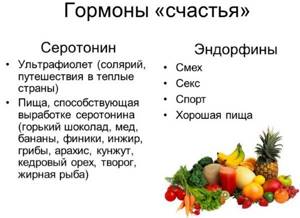
The easiest and fastest way to get it is through food. Therefore, during this period, more sweets and unhealthy foods are consumed, which give pleasure.
Presence of parasites
Parasites that are localized in the digestive tract consume beneficial substances from human food. The feeling of fullness after eating does not come for long. There is also a need to increase the volume of portions. With helminthic infestations, the desire to eat also occurs at night.
Appetite during pregnancy
During pregnancy, a woman experiences an increased feeling of hunger. In the first trimester, this is due to hormonal changes. The body tries to provide the embryo with all the necessary substances.
Therefore, depending on what useful elements are missing, the taste preferences of the expectant mother change. In the 2nd and 3rd trimester, the appetite is increased, since there should be enough food to normally maintain the vital functions of the mother and child.
Frequent hunger with gastritis
Constant hunger with gastritis occurs only at the initial stage of the disease. At this time, the gallbladder secretes an unlimited amount of gastric juice, which provokes an increase in appetite.
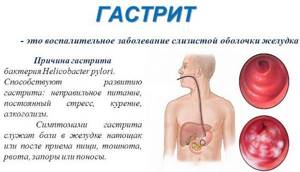
Sometimes a woman may eat more not because of a constant feeling of hunger, but because of stomach pain . At the initial stage of the disease, eating food reduces the pain symptom. But over time this stops helping.
Dehydration
A woman may experience increased appetite due to dehydration. The reason is that the signal for the need to eat or quench thirst comes from almost one part of the brain. If the organ malfunctions, a false signal of hunger may be sent.
Excessive alcohol consumption
Drinking alcohol affects brain function. It begins to send false signals about a lack of food, and more appetite-inducing hormone is produced.
Additionally, alcohol causes dehydration.
But since performance is impaired at this time, instead of a signal about a lack of fluid, a feeling of hunger arises. When saturation occurs, the brain sends an impulse about this with a delay.
For oncology
During cancer processes, an increase in the feeling of hunger is observed in rare cases. If the tumor is localized in the part of the brain responsible for appetite, then a feeling of fullness may not occur or false signals will be sent about a lack of food. Also, cancer is sometimes accompanied by a decrease in blood sugar levels, which also provokes increased appetite.
Other reasons
There are also less dangerous causes of increased appetite that do not require drug treatment.
These include:
- Sedentary lifestyle may lead to brain dysfunction. And it will send constant signals about lack of food.

- Wrong breakfast or lack thereof . Without replenishing the body with the necessary reserves in the morning, it can signal hunger during the day.
- The diet is formulated incorrectly . If the menu does not take into account the body's need for all nutrients, then hunger signals will be constant.
- High brain activity (exams, mental work) requires more energy. Therefore, the feeling of hunger appears faster.
- Lots of physical activity . At this time, energy consumption also increases. To replenish it, you need to eat more food.
- Quitting nicotine . Often food becomes a substitute for a bad habit. The woman, who usually went out to smoke, begins to gorge on food.
- Some medications have side effects such as increased appetite while taking the drug.
- The habit of eating while watching TV . Therefore, when you turn on your favorite movie, the body, at the reflex level, begins to release hormones that induce appetite.
- Overfeeding in childhood . The body is accustomed to eating often and in large quantities. Therefore, as the brain matures, it also requires the consumption of food in large quantities.
These causes can be eliminated independently, without contacting a therapist. The main thing in this case is not to confuse them with diseases. If, after eliminating the cause, the feeling of hunger remains, examination and drug treatment are necessary.
Physical and mental hunger
Answer to question number 2. Hunger is broadly classified into physical or actual hunger and mental or emotional hunger. You feel hungry when your body is deficient in sugar. But hunger is in your head when you just can't feel full even after a big meal. And this emotional hunger is the second reason why you constantly want to eat, and leads to obesity and obesity-related diseases.
So, unless you make a conscious effort to control your constant hunger, you will never break this vicious cycle. That's why it's important to learn the 20 best appetite control strategies.
Symptoms for which you need to see a doctor
Increased appetite (the causes in women may be hormonal or pathological) may signal the presence of a disease. Depending on the accompanying symptoms, it is possible to determine which disease caused the increase in appetite.
Diseases accompanied by increased appetite:

Increased appetite. The causes in women may lie in various diseases, such as anemia.
| Disease | Symptoms |
| Gastritis |
|
| Stomach cancer |
|
| Brain cancer |
|
| Worm infestations |
|
| Diabetes |
|
| Low sugar |
|
| Thyroid pathologies |
|
| Stress |
|
| Anemia |
|
The listed diseases require drug treatment; they do not go away on their own. Initially you need to visit a therapist. After the initial examination, further diagnostics and a treating specialist (gastroenterologist, psychologist or oncologist) will be prescribed.
No appetite: what to do
It is not for nothing that a good appetite is considered a sign of good health. When a person doesn't feel hungry for longer than usual, it causes anxiety. It immediately becomes clear that not everything is in order with your health, mental or physical. No one has ever managed to feel good without refueling the body on time. The discomfort and weakness caused by the lack of nutrients that enter the body with food are so strong that people literally lose their zest for life. If you lose your appetite, what to do is not always clear. At first, people tend to neglect the situation, but meanwhile it becomes so complicated that the strength and desire to correct it disappear. We offer a selection of effective, proven tips on what to do when you don’t feel like eating anything.
First of all, try to restore the natural need for food using elementary methods.
- Why not work up an appetite in the park or on the embankment? Choose a place for a walk where there is a lot of greenery. Having saturated your lungs with enough oxygen, you may want to eat very quickly. It wouldn't hurt to walk past a place where street food smells delicious. The mouth-watering smells will surely wake up your sleeping taste buds!
- Physical activity in nature is an excellent appetite activator. Jogging, cycling, any sport with a ball or rackets, fitness, dancing, yoga, or better yet, swimming are suitable. Exercising in water makes you ravenous! But don't overexert yourself, because exhaustion can have the opposite effect. It’s very good if you don’t study alone. Good company and pleasant fatigue will certainly restore your lost appetite.
- Often, interruptions in appetite are associated with non-compliance with sleep and eating patterns. Restore your usual daily routine if it has been changed or simply wait until the adaptation period has passed.
- It happens that loss of appetite is caused by the monotony of your diet or loneliness. Perhaps you are simply tired of the usual menu or too lazy to cook something new for yourself, and have no one to share the meal with. Make an effort - treat yourself to something delicious. “Colorful food”, fresh berries, vegetables and fruits, pleasing to the eye, greatly stimulate the appetite. If you don’t feel like doing something for yourself, invite guests. You won’t feed them banal potatoes, will you?! But stuffed zucchini with potato sailboats will seduce you even during the cooking process. There is also a simpler option for those who are not capable of culinary feats. Organize a meeting of old friends. With them for company you will enjoy everything!

- There is a high probability of overcoming your lack of appetite by doing your favorite things. Just find time to do what makes you happy. In a depressed state, there can be no talk of new hobbies, but remembering old ones is very useful. Listen to the music you've been listening to, look through the exhibits of a long-forgotten collection, re-read a book that made an impression on you. It may happen that you won’t even notice how you start snacking on everything that comes to hand.
- If you have bad habits, do your best to break them. We do not promise that your appetite will return immediately, because the process of restoring the body from negative influences is a long one. However, after a while you will definitely feel a surge of energy and hunger.
Features of reducing increased appetite in women
If severe hunger is not a symptom of an illness, then medications will not be required to eliminate it. When the cause is pathology, then without eliminating it, increased appetite cannot be eliminated.
Ways to fight hunger:
- Check the menu and remove foods that do not fill you up but are high in calories. Food should be rich in useful elements.

- Assess the extent of your dependence on food. If the habit appeared a long time ago, then you should not suddenly change your diet. Everything needs to be done gradually, without causing stress in the body.
- A woman must understand that food is needed to replenish energy reserves, and not for pleasure.
- It is necessary to regularly cleanse the body of accumulated waste and toxins.
- Before eating, drink 150-200 ml of water. This dulls hunger and will not allow you to eat a lot of food. It will also help determine whether you really wanted to eat, or whether it was a malfunction of the brain and fluid was required.
- You can't rush while eating. It should be chewed well. You need to feel full, not overeated.
- During a meal, you should not be distracted by extraneous matters.
- Stop eating problems and don’t eat in front of a monitor or TV.
- Food is served on small plates. The food should be slightly hot, then the feeling of fullness will come faster.
- Increase physical activity (sports, swimming, yoga). This will help burn extra calories and distract you from eating.
- If you develop an appetite 60-90 minutes after the main meal, do not suppress it with water or a hamburger. You can eat an apple or a banana.
- Give proper time to the sleep process.
If increased hunger is caused by pregnancy, then it is better to adjust your diet with a gynecologist or nutritionist. Since good nutrition is important at this time. Excess food will lead to obesity of mother and child in utero, which will affect the health of both.
It is necessary to distinguish between types of fears
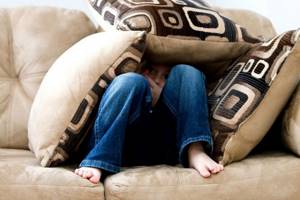
You might argue that adults are afraid too. Not without this, and there is an explanation for fear.
“People who experience anxiety, are unbalanced, and are neurotic in a critical situation give vent to their inner fear that they have always had. The coronavirus appeared, and it provided a legal opportunity to release one’s fear,” says Irina Maslova-Semenova.
But it is important to understand that fear is different.
- The one that arises as a response to current events - a natural disaster or the coronavirus pandemic - is called rational. Because the situations in which it arises are real.
- There are various phobias. The most common ones today are the fear of forgetting your mobile phone at home, being late for work, fear of disapproval or not being a leader. This is an irrational fear, which usually hides something more. The source of irrational fear is in our childhood.
“If the parents isolated the child - they left him with the grandmother for the summer, often asked him to be alone in the children's room - the person has an internal experience of loneliness. And when, due to a situation caused, for example, by coronavirus, the authorities decide to isolate, then that same childhood trauma may be triggered,” says Irina Maslova-Semenova.
“Those who were in intensive care as children, being separated from their parents, also mentally return to the past. Having become adults, with the looming threat of the virus, they subconsciously return to those episodes when they were alone in the clinic, without maternal warmth and care. They are not afraid of a new situation, but relive past moments and feel fear. It is impossible to calmly react to general tension with such psychological trauma,” the expert adds.
Diagnostics
When increased hunger is caused by a disease, it is necessary to undergo a full examination to identify the cause. After recovery, appetite usually returns to normal on its own. In some cases, the help of a nutritionist may be required (to reduce the gained kilograms).
Initially, the therapist clarifies when the symptom appeared and what other signs accompany increased appetite.
A visual inspection and examination of the card for previous diseases is carried out. A woman needs to undergo urine, stool and blood tests. With their help, the amount of glucose, hormones and the likelihood of cancer are determined. As well as the state of the digestive tract.
To more accurately determine the disease, hardware diagnostics is required:
- Ultrasound;

- FGS;
- CT and MRI.
If there is a possibility of a psychological disorder, consultation with a psychologist is necessary. Depending on the root cause of the increase in appetite, treatment is prescribed. It is usually combined with diet therapy.
Treatment methods depending on the cause of hunger
Increased appetite, the causes in women determine the methods of treating the symptom, can be eliminated with diet or medication.
Depending on the diagnosis, treatment may be prescribed:
| Cause of hunger | Drugs | Other procedures |
| Gastritis | Maalox, Gastal, Rennie. | Dieting. |
| Cancer | Bevacizumab, Erlotinib, Crizotinib. Antibiotics, antiviral and hormonal agents can be used in treatment. Depending on what stage the tumor is at. | Diet, chemotherapy. |
| Worm infestations | Decaris, Piperazine, Pyrantel. | Diet and folk recipes |
| Diabetes | Maninil, Diabeton, Glyurenorm. | Diet is necessary, without it treatment will not be effective |
| Low sugar | Anaprilin, Hypothiazide, Verapamil. | Diet and use of diluted glucose during attacks. In severe cases, glucose is administered intravenously. |
| Thyroid pathologies | Mercazolil, Tyrosol, Propicil. | Diet and hormone therapy |
| Stress | Motherwort: Persen, Fluoxetine. | Consultations with a psychologist. |
| Anemia | Venofer, Maltofer, Ferrum-Lek. | Diet containing foods containing iron. |

The list of necessary and compatible drugs is prescribed by a specialist (therapist, gastroenterologist, psychologist). Self-treatment of pathologies is unacceptable.
Treatment
Help before diagnosis
Increased appetite, caused by previous depletion of the body by severe pathology or associated with hormonal fluctuations in women, does not require specific therapy. Eating behavior returns to normal within a few days, and the general condition remains satisfactory. If the feeling of hunger is caused by stressful situations or the consumption of certain foods, you can cope with it on your own.
Doctors recommend increasing the content of protein foods in the diet, as they provide a long-lasting feeling of fullness. Fiber-rich foods help increase portion size and fill your stomach while being low in calories. To improve the emotional state, auto-training techniques and psychological consultations are necessary. Increased appetite, accompanied by general malaise, is an indication for a visit to the doctor.
Conservative therapy
Medical tactics for eating disorders depend on the cause of their occurrence. For prolonged depression and severe mental disorders, specific medications are selected by a psychiatrist based on the degree of disturbance in the emotional-volitional and intellectual spheres. If increased appetite is due to somatic diseases, etiotropic and pathogenetic therapy drugs are prescribed:
- Insulin
. For type 1 diabetes, an intensified insulin therapy regimen is indicated, which includes short- and long-acting hormones. In the hospital, the optimal dose and time of administration are selected, and the diet for the week is written out, indicating bread units. - Hypoglycemic agents
. Sulfonylurea derivatives and biguanides increase tissue sensitivity to insulin and improve glucose processing. This helps normalize appetite and prevents the development of severe complications of diabetes. - Thyrostatics
. To eliminate the negative effects of thyroid hormones on the body, medications from the Mercazolil group and iodine preparations are used. For symptomatic treatment of thyrotoxicosis, beta-blockers, antipyretics, and infusion therapy are used. - Hormonal drugs
. The increased appetite that occurs in the premenstrual period can be eliminated with the help of combined forms of progesterone and estrogens. Medicines are effective for severe PMS, which occurs with disruption of a woman’s ability to work. - Antidepressants
. Serotonin receptor agonists act directly on the higher centers of the brain responsible for emotional reactions. For severe stress and increased excitability, they are combined with “daytime” tranquilizers and sedatives. - Anthelmintic drugs
. Taken in short courses to destroy and eliminate parasites in feces. During treatment, patients are recommended to follow a special diet. Some time after recovery, you need to repeat taking the medications for preventive purposes.
Drug therapy
If hunger is not a symptom of the disease, then to eliminate it, the therapist or nutritionist prescribes drugs that act on the nervous system and suppress sensitivity to hormones that increase appetite. But after finishing taking them, the symptom may return.
Medicines make it possible to temporarily reduce hunger and weight:
- apetinol . A food supplement that promotes a quick feeling of fullness;
- meridia _ Increases metabolism and reduces appetite.
- turboslim . Reduces appetite and helps normalize digestion;
- reduxin . Affects the production of hormones. Dulls hunger. Normalizes the metabolic process.
These products are dietary supplements and their effect has not been fully proven. They have contraindications, which should be discussed with a specialist. Uncontrolled use of drugs can harm the body.
How to reduce your appetite in order to lose weight and not harm yourself?
Currently, there are many medications designed to both reduce your appetite and your body weight. But they should be used with extreme caution, as there is a risk of encountering a number of side effects in the form of high blood pressure, mental disorders caused by the drug’s attack on the part of the brain that gives the command that it’s time to eat.
The slightest overdose can lead to dire consequences, even death!
Therefore, if you want to correct your figure, consult a doctor and follow his recommendations! The specialist will tell you in detail how to reduce your appetite in order to lose weight without jeopardizing your health.
On a note!
Don't resort to crash diets to quickly lose weight. They can lead to hormonal imbalance and, as a result, increased appetite. When you return to your previous diet, the kilograms you lost will quickly return.

- How to cure intervertebral hernia without a knife
Psychotherapy
When hunger is psychological in nature and you cannot cope with the problem on your own, you need to consult a psychologist.
To get rid of the symptom, you must follow the following points:
- realize that food is necessary for the normal functioning of the body, this is not a way to get pleasure;
- eliminate food addiction;
- it is necessary to find out the cause of food cravings and stress eating habits;
- try to replace your next snack with a hobby (dancing, swimming, walking).

A large part of the treatment is a conversation with the patient, distraction from stress and cravings for eating problems. Psychotropic drugs and drugs to reduce appetite may be prescribed. This will speed up the healing process.
I am constantly hungry – is the reason psychological?
As mentioned earlier, the reasons that you constantly want to eat lie not only in physiology. So, this issue needs to be approached thoroughly and comprehensively. In order to understand what type of hunger is tormenting you - physical or related to the nervous system - listen to the sensations that arise within yourself. A number of symptoms will serve as a clue.
- Baking soda for weight loss: does it really work or myth?
Psychological hunger:
- sudden appearance;
- craving for a certain type of food;
- desire to eat here and now;
- automatic absorption of food (without pleasure);
- remains even when, it would seem, you are already full.
Physiological hunger:
- gradual appearance;
- the need to replenish energy;
- not so categorical about food (he satisfies himself with everything that is in the refrigerator);
- eating as a conscious process;
- recedes upon saturation.
Diet therapy
You can reduce your appetite with diet. In this case, it is necessary that the body receives all the necessary substances and does not experience a strong feeling of hunger.
To do this, you should eat foods that take longer to digest and leave you feeling full:
- Fried and fatty foods, although they take a long time to digest, are harmful to the body. Therefore, it should be excluded from the diet or consumed in small portions during the day.
- It is necessary to ensure that the products are combined and do not cause increased gas formation or stomach upset.
- You should not drink liquid during meals; it dilutes the gastric juice and prevents the feeling of fullness from occurring in a timely manner.
- Do not use seasonings that increase appetite when preparing dishes.
- Dishes should be moderately salted or slightly under-salted. Salt stimulates appetite.
- Eat fiber more often. It takes longer to digest and helps cleanse the body of toxins.
- You need to have breakfast, lunch and dinner at certain times. Fruit snacks are allowed between them.
- Sweets should be replaced with dried fruits, and sugar with honey.
A properly composed menu for the week will help you avoid overeating. The body should not feel severe hunger. Initially, it is recommended to create a diet together with a nutritionist.
Lost appetite: reasons
Easily identified and non-dangerous causes of loss of appetite
There is a mild form of appetite disturbance, that is, a decrease in appetite (hyporexia) and a complicated form, when a person has no appetite at all (anorexia). At the stage of hyporexia, you can still try to fight the disorders on your own, but anorexia poses a great danger to human health and life, which means self-medication is unacceptable!
Loss of appetite may indicate serious problems in the functioning of internal organs. Especially if your appetite has suddenly disappeared. There is no doubt about the seriousness of the situation when the temperature simultaneously jumped and the appetite disappeared.
- How to get rid of acne on your face at home
If loss of appetite is the only symptom, then we are talking about temporary disruptions in the body’s functioning. Let's look at why this happens.
- Appetite decreases under the influence of external factors, often weather conditions. Personally, I eat almost nothing for days on end during abnormally hot summers. It’s normal that you don’t feel like eating; the body correctly requires more fluid to restore its loss. Drink a lot and don't force yourself to eat. Your appetite will be restored as soon as the heat subsides.
- Changing your usual place of residence can be a challenge both physically and psychologically. If you've lost your appetite after moving, don't worry. Give yourself time to get used to new conditions and circumstances, and your body to adapt.
- Chronic fatigue can lead to appetite disturbances. The fact is that the body spends a lot of energy on the process of digesting food. When a person is tired, the subconscious mind tells you to conserve your strength. In addition, when you fall off your feet from unbearable stress, not only physical, you can be so lazy to take care of food that it is easier for the body to refuse it.

- Another common reason for loss of appetite is the body’s protest against certain medications. If you have been taking medications, biological supplements, doping agents, contraceptives, or weight loss medications for a long time, check the side effects in the instructions and the expiration date of the medications. To restore your appetite, you will have to replace a specific drug or stop using such drugs altogether. Stop self-medication, in particular with herbs, and categorically refuse expired medications. Simple actions can easily restore lost appetite.
- If you abuse your diet to lose weight, you risk causing great harm to your health. Diets are dangerous because they artificially create a deficiency of vital substances. Due to improper diets, nutrition becomes irrational, which in turn leads to rapid weight loss and loss of appetite. If it comes to this, gradually exit the diet. Next time, choose a diet after consulting a nutritionist and strictly follow his recommendations.
- Loss of appetite is often a consequence of bad habits . Smoking, alcohol abuse, and drug use in any way slowly but surely destroy internal organs and disrupt the processes occurring in the body, in particular digestion. Lack of appetite is a predictable result of a long-term unhealthy lifestyle. It's never too late to give up unhealthy foods. Finally do it!
- Psychological causes of loss of appetite are common. The body perceives any strong disturbances as stress. It doesn’t matter what they are, positive or negative. A wedding or divorce, a long-awaited meeting or its cancellation, an important victory or defeat - such events can significantly reduce your appetite. The only difference is that after positive experiences, disruptions in the body associated with an unwillingness to eat quickly normalize, while negative ones often develop into a depressed state or even depression. If you have not only poor appetite, but also mood swings for a long time, consider this a sufficient reason to consult a doctor. Don't expect depression to go away with time. The longer you wait, the harder it will be for you to return to normal life. Know: along with your mood, your appetite will return.
Folk remedies
If appetite is not a symptom of the disease, then the therapist recommends using folk therapy recipes to relieve hunger.
To do this, you can use the following recipes:
- Parsley decoction (50 g herb and 200 ml boiling water) cook for 15 minutes. Consume when hungry.

- Nettle infusion . Steam 25 g of herb in 200 ml of boiling water. Take 30 ml 3 times a day.
- Apple cider vinegar (50 ml) diluted in 200 ml water. Drink before meals. The feeling of fullness comes faster.
- Whole garlic (1 clove) or an infusion of it (infuse 3 crushed cloves in 200 ml of water 24 hours, drink 30 ml before meals). Helps satisfy hunger.
- A mixture of ginger, lemon and honey . You will need to grind 150 g of lemon (without peel and seeds) and ginger. Add 200 ml of honey to them. Mix thoroughly and store in a cool place. Take 15 ml on an empty stomach in the morning.
Increased appetite can be overcome with the help of folk recipes, medications, or after consulting a psychologist, but only if the cause of its occurrence is not pathological changes in the body. Also, hormonal drugs can be used for treatment in women if the disorder is caused by a failure in the production of female hormones.
Author of the article: Kotlyachkova Svetlana
Article design: Oleg Lozinsky
If you have no appetite during pregnancy
With the help of her own body, the expectant mother ensures the development of a new life. This requires more physical and psychological resources than usual. Extraordinary emotions, excessive anxiety, increased responsibility, sudden hormonal surges are factors that significantly change a person’s condition. Of course, they, in turn, affect appetite. During different periods of pregnancy, it either disappears or grows exorbitantly. A pregnant woman finds herself between two extremes: eating for two, but not overeating. At first glance, it is paradoxical that appetite worsens during pregnancy. We will explain why this happens.
- How to relieve period pain
The worst thing that loss of appetite during pregnancy can indicate is an exacerbation of existing diseases, any of the above. It is clear that you will have to undergo treatment, as well as the fact that self-medication is out of the question.
In a healthy pregnant woman, sluggish interest in food has clear explanations directly related to her condition. Mostly, lack of appetite during pregnancy is observed in the first trimester.
Toxicosis is the most common reason why a pregnant woman eats little. It usually lasts up to three months, during which a woman can even lose weight. The pregnant woman is feeling nauseous and has no appetite, that’s understandable. But toxicosis itself is a consequence of certain processes characteristic of the pregnancy period. Exacerbation of olfactory receptors causes aversion to certain odors. A woman's increased sensitivity and vulnerability to the changes that occur to her is often expressed by poor appetite. Hormonal surges suppress appetite due to decreased digestive function. In addition to the above reasons, a pregnant woman’s reluctance to eat can be explained by a lack of iron or folic acid. They are necessary in sufficient quantities to form a healthy fetus. If they are lacking, the body signals this by refusing to accept food, especially one that does not contain them. We should not forget about the factors that greatly influence the desire or reluctance to eat. The good news is that all these are normal and temporary phenomena. At the same time, we warn you not to take the fact that you lost your appetite during pregnancy as infantile, because you simply must provide your unborn child with everything necessary.

If a woman in the second trimester of pregnancy complains: “I don’t feel hungry,” this basically only means that the uterus, putting pressure on the intestines, provokes stagnation of digested foods in the body.
In the third trimester, the baby’s enlarged body presses on the stomach through the wall of the uterus, and accordingly, the stomach’s capacity decreases, which suppresses the feeling of hunger. Also, women often worry about gaining excess weight and not feeding the fetus, fearing a difficult birth, so they subconsciously limit themselves in food.
The basic principle of nutrition for a pregnant woman: eat little, often and only the best!
What should a pregnant woman do to improve her appetite?
- First of all, walk a lot. Be physically active, without excessive exertion, of course. Do things that make you happy and avoid things that make you sad.
- Take tests on time, saturate the body with necessary microelements through nutrition or, if necessary, vitamin preparations.
- Eat in small portions, but often, 5-7 times a day. Consume liquid foods. Drink a lot.
- Sleep longer at night and allow yourself naps during the day.
During pregnancy, lack of appetite is a mostly alarming symptom. However, it is forbidden to ignore it, if only because up to 80% of the health of the unborn child depends on the mother’s nutrition. And the woman herself needs to prepare for childbirth. Pretty compelling to do your best to eat a balanced diet during this crucial period, isn't it?







